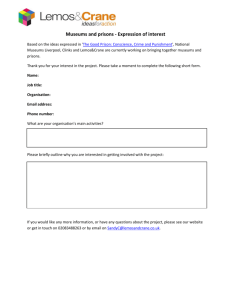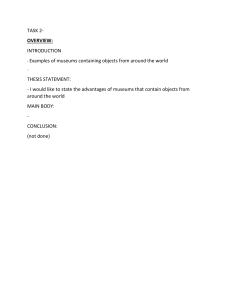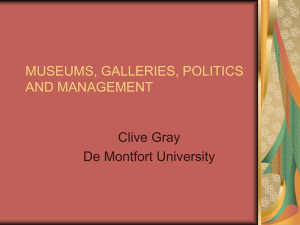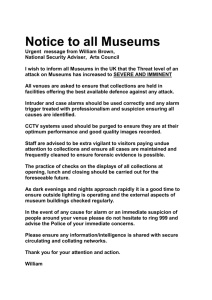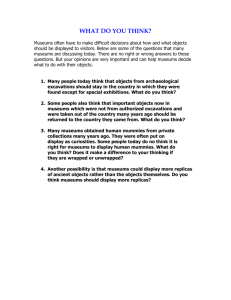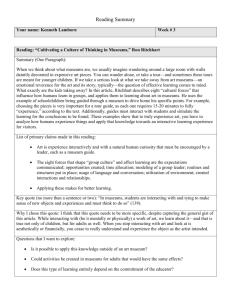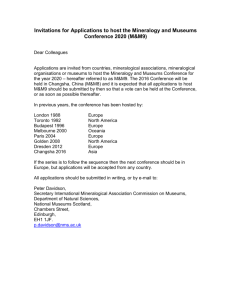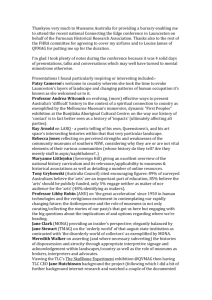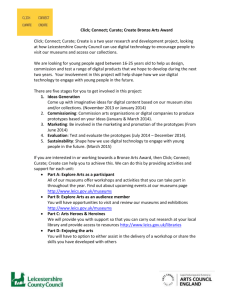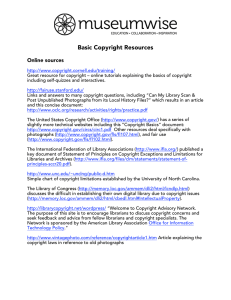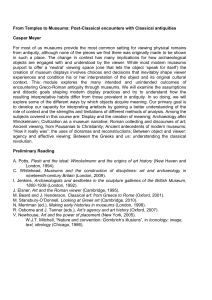TRAD 104: Museums as Cultural and
advertisement
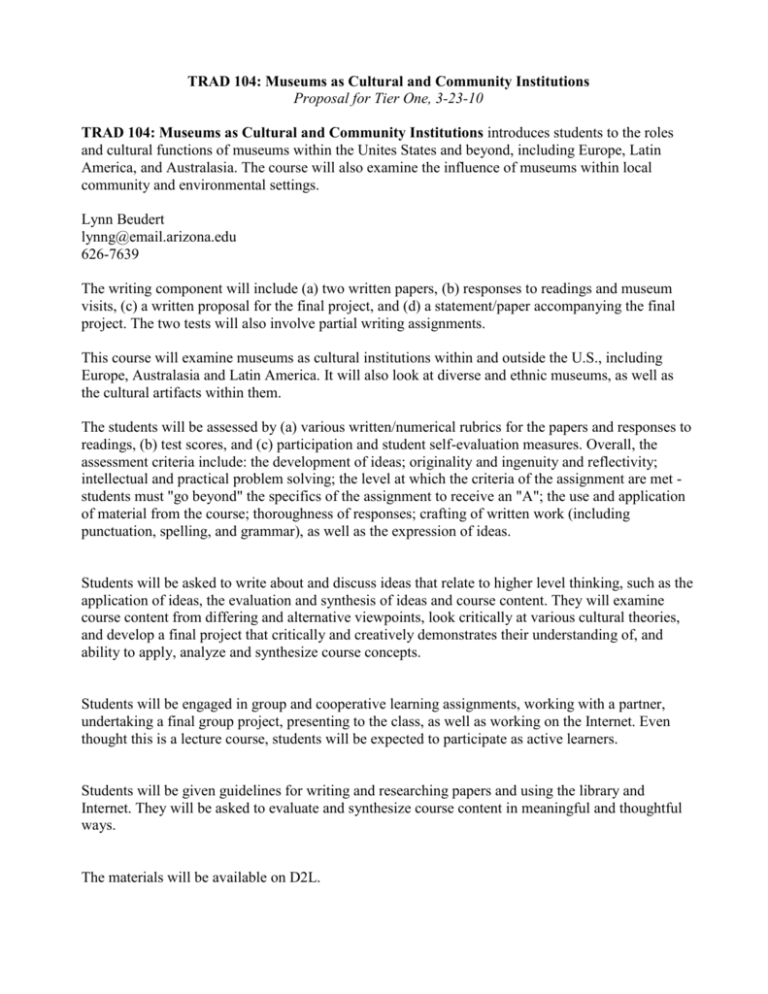
TRAD 104: Museums as Cultural and Community Institutions Proposal for Tier One, 3-23-10 TRAD 104: Museums as Cultural and Community Institutions introduces students to the roles and cultural functions of museums within the Unites States and beyond, including Europe, Latin America, and Australasia. The course will also examine the influence of museums within local community and environmental settings. Lynn Beudert lynng@email.arizona.edu 626-7639 The writing component will include (a) two written papers, (b) responses to readings and museum visits, (c) a written proposal for the final project, and (d) a statement/paper accompanying the final project. The two tests will also involve partial writing assignments. This course will examine museums as cultural institutions within and outside the U.S., including Europe, Australasia and Latin America. It will also look at diverse and ethnic museums, as well as the cultural artifacts within them. The students will be assessed by (a) various written/numerical rubrics for the papers and responses to readings, (b) test scores, and (c) participation and student self-evaluation measures. Overall, the assessment criteria include: the development of ideas; originality and ingenuity and reflectivity; intellectual and practical problem solving; the level at which the criteria of the assignment are met students must "go beyond" the specifics of the assignment to receive an "A"; the use and application of material from the course; thoroughness of responses; crafting of written work (including punctuation, spelling, and grammar), as well as the expression of ideas. Students will be asked to write about and discuss ideas that relate to higher level thinking, such as the application of ideas, the evaluation and synthesis of ideas and course content. They will examine course content from differing and alternative viewpoints, look critically at various cultural theories, and develop a final project that critically and creatively demonstrates their understanding of, and ability to apply, analyze and synthesize course concepts. Students will be engaged in group and cooperative learning assignments, working with a partner, undertaking a final group project, presenting to the class, as well as working on the Internet. Even thought this is a lecture course, students will be expected to participate as active learners. Students will be given guidelines for writing and researching papers and using the library and Internet. They will be asked to evaluate and synthesize course content in meaningful and thoughtful ways. The materials will be available on D2L.
